
The panel provides clinical insights on talking with patients about complications associated with CAR T-cell therapy.

Your AI-Trained Oncology Knowledge Connection!


The panel provides clinical insights on talking with patients about complications associated with CAR T-cell therapy.
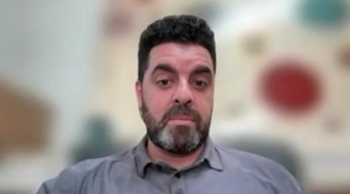
A phase 1 trial assessed the use of PSCA-directed CAR T cells in patients with metastatic castration-resistant prostate cancer.
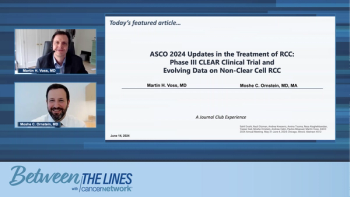
Key opinion leaders analyze the latest advancements and research findings specific to Non-Clear Cell Renal Cell Carcinoma presented at the American Society of Clinical Oncology 2024 conference.

Key opinion leaders examine the application of tyrosine kinase inhibitors (TKIs) and evaluate first-line therapeutic approaches for renal cell carcinoma.
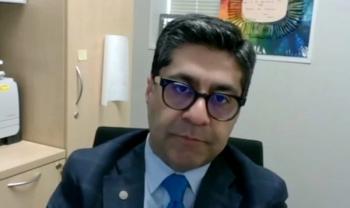
Kamran Idrees, MD, MSCI, MMHC, FACS, discusses how factors such as vessel involvement can influence the decision to proceed with surgical therapy.

Continuing the discussion on supportive care strategies, the panel discusses the management of cytopenias and HLH/MAS following CAR T-cell therapy.

Experts on multiple myeloma provide clinical insights on supportive care strategies for patients experiencing infections or secondary malignancies following CAR T-cell therapy.
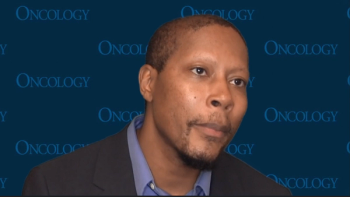
All patient populations benefitted from glofitamab in a phase 1/2 trial, but the design excluded capture of high-risk features present in similar studies.
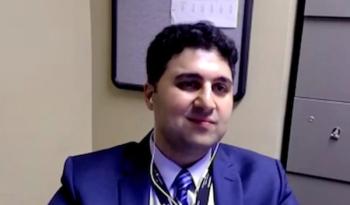
Milad Baradaran, PhD, DABR, outlines the design of Mobetron as an option for administering intraoperative radiation therapy in pancreatic cancer care.
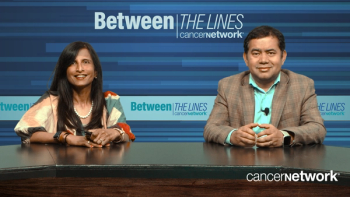
Amrita Y. Krishnan, MD, and Binod Dhakal, MD, discuss the clinical implications of data from MajesTEC-1 and provide key takeaways on the evolving relapsed/refractory multiple myeloma treatment landscape.

Following a review of recent data from MajesTEC-1 investigating teclistamab, the panel provides clinical insights on dosing and adverse event prophylaxis practices.
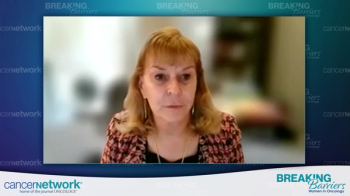
Julie M. Vose, MD, MBA, and Avyakta Kallam, MD, highlighted research advances in the lymphoma field they’ve witnessed throughout their careers.
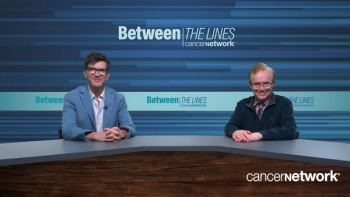
Hematologic oncology specialists provide an overview of the study design of the PERSEUS trial and outline the role of MRD negativity in the treatment of patients with multiple myeloma.

Cesar Rodriguez, MD, and Frits van Rhee, MD, PhD, discuss the overall frontline treatment landscape for transplant-eligible patients with newly diagnosed multiple myeloma (NDMM).
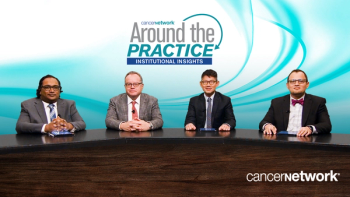
Focusing on recent approvals in earlier lines of relapsed/refractory multiple myeloma, the panel has a comprehensive discussion on the CARTITUDE-4 and KarMMa-3 studies and shares clinical insights on administering CAR T-cell therapy and monitoring patients.

A panel of experts on multiple myeloma introduce themselves and discuss recent data presented on the phase 3 IMROZ trial for transplant-ineligible patients with newly diagnosed multiple myeloma (NDMM).
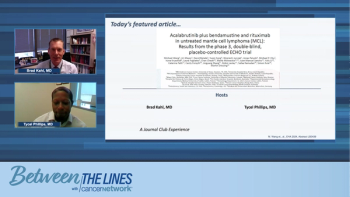
The panelists evaluate the preliminary efficacy findings from the ECHO trial and address how the COVID-19 pandemic influenced overall survival outcomes in the study.

Key opinion leaders examine the current frontline treatment options for mantle cell lymphoma while identifying critical unmet patient needs requiring attention.

Arvind Dasari, MD, MS, outlines the evolution of colorectal cancer screening, addressing historical challenges, and the development of non-invasive screening techniques.

Leading experts offer insights into colorectal cancer, including its prevalence, staging, and the current landscape of treatment options.

A panel of oncologists in academic and community settings discuss patient monitoring practices following CAR T-cell infusions, with a focus on neurotoxicities.

Members of the panel discuss their criteria for determining when a patient is ready to transition back to community oncologists after they receive CAR T-cell therapy.

Key opinion leaders analyze recent findings from the CLEAR trial presented at ASCO 2024, focusing on the four-year follow-up data for progression-free survival and overall survival outcomes.

Key opinion leaders explore renal cell carcinoma subtypes, their incidence rates, primary sites of origin, and frequently observed genetic mutations.
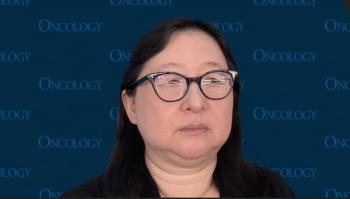
Future meetings may address how immunotherapy, bispecific agents, and CAR T-cell therapies can further impact the AML treatment paradigm.

Focusing on supportive care practices, the panel discusses the critical role of effective multidisciplinary team collaboration and communication in optimizing the management of CRS and ICANS in patients receiving CAR T-cell therapy.

Treatment with revumenib appeared to demonstrate efficacy among patients with KMT2A-rearranged acute leukemia in the phase 2 AUGMENT-101 study.

The panel provides comprehensive insights on the treatment of ICANS following CAR T-cell therapy, highlighting the role of imaging, clinical trial data, and clinical pearls for community practices.

Experts on multiple myeloma review the study design and results from MajesTEC-1, focusing on the efficacy and safety findings, and provide insights on adverse event management practices.

Amrita Y. Krishnan, MD, and Binod Dhakal, MD, provide an overview of the current treatment landscape in relapsed/refractory multiple myeloma.